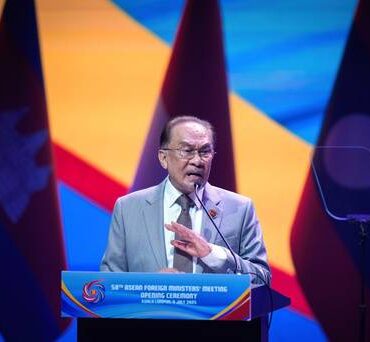So what if you’re from UP?: Thoughts on equality and opportunity

“So what if you’re from UP?” These were the opening words of veteran broadcast journalist Jessica Soho during the 114th general commencement exercises of the University of the Philippines (UP) Diliman. It was a jarring question asked by a cameraman 40 years ago when she had just graduated. This was not an unexpected response to a graduate of a national university. Quite frankly, it is the opposite of the very reason why many parents want their children to take the University of the Philippines College Admission Test (Upcat).
Bringing high hopes of passing the Upcat, which more than a hundred thousand will dare to take, it is the first equalizer for anyone aspiring to be in UP. But the equalizer—as Soho referred to work in front of the audience at the university amphitheater—tells only half of the story. While indeed standards laid flat on everyone humble and equalize, the stack was never equal, to begin with. Those with fair—and, for that matter, unfair—advantages are merely stooped down to be at par with others. Those who never got a head start to begin with remain pushed aside.
The Upcat before failed to reach areas in far-flung regions. This year, there will be Upcat testing centers in every province of the country. Even with this expanded access, there are senior high school students who may not be familiar with the Upcat. And even if they get to take the test, the conditions that led them to their seats inside the testing centers were never equal. Some have the privilege of better education than others. Some do not need to work while going to school. Some have access to review centers to sharpen their knowledge.
Fresh from donning their well-coveted sablays, the workforce is no different. In an ideal world, there would be no qualms about pursuing one’s interests without having to worry about failing. But there are some graduates whose families depend on them for a living. They carry with them not only the dreams they made for themselves but also those that their parents failed to achieve. They carry with them the dreams of their siblings, still far down the ladder of education; they carry with them the hopes that the country will be better than it was before.
Before the academic calendar shift—implemented at UP in 2014—commencement exercises were held in April (with the assurance that the rain would not drench the sunflowers blooming along University Avenue), while Upcat was held sometime in September or October. This year, sablay season is in July, while the Upcat is administered during the first weekend of August.
Ceremonies that welcome and send students away assure us, faculty members, that there will always be a new breed of students to enter the halls of UP. It is humbling that they speak of their struggles not as battles fought alone, but as a collective. They reached their peak not only due to their own volition but also because of their families, friends, and the community around them. They carry the hopes of their parents. They inspire their siblings. They come across friends of various cultures and origins. They recognize the role of the ordinary Filipino who makes their education possible—jeepney drivers ferrying them between classes, carinderia attendants giving them extra ulam, ambulant vendors—the outskirts and margins of society quickly remembered and forgotten during elections.
The task is not to make a perfect world but to push for equalizers in every aspect of society.
“So what if you’re from UP?”
EDWARD JOSEPH H. MAGUINDAYAO,
ehmaguindayao@up.edu.ph

















